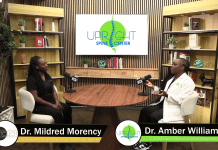|
Getting your Trinity Audio player ready...
|

When it comes to environmental advocacy in South Florida, protecting Biscayne Bay and the Everglades from pollution have long been unifying causes for our community to rally around. But pollution sadly comes in many forms, and it’s not just threatening our water, air, and land. This week is Dark Sky Week – an important moment to learn more about the less-known impacts of light pollution.
For most of the planet’s history, the natural beauty of the night sky was unbroken. But now light pollution is increasing at twice the rate of population growth and 83% of the world’s population lives under a light-polluted sky. Only one in five North Americans can see the Milky Way at night, and 99% of Americans experience light pollution, according to a 2016 study.
I was inspired to explore how to reduce light pollution while camping in the Everglades. Even from miles away the bright glow of Miami lights up the sky, interfering with the natural peace and tranquility of the night.
We can thank a budding woman scientist, Jennifer Barlow – at the time a Virginia high school student with a passion for astronomy – for championing the creation of International Dark Sky Week in 2003. Every year during the new moon week of April, when the night sky is most observable, communities around the world recognize Dark Sky Week by working to reduce all but the most vital artificial light sources.
So why is light pollution harmful?
It has negative impacts on the planet, people, wildlife, and ecology. Light pollution results in waste of both economic and energy resources and also contributes to climate change by adding excess heat to the air. Studies show that light pollution can disrupt the natural growth patterns of trees and plants while also endangering various species of birds, sea turtles, insects, and more – it’s responsible for an increase in migratory birds colliding with buildings and changes to underwater ecosystems.
Our county is partnering and participating this year in Miami Dark Sky Week, as I have asked all County buildings to turn off non-safety lights after 8 pm. We can all take steps to help combat light pollution on our own, like being mindful of how and when we consume artificial light and turning off our lights when they are not in use. We should continue to call for greater investments in smart, energy-efficient lighting systems to help prevent artificial light from polluting the night sky while saving money and energy. The County is taking steps to prioritize energy efficiency through programs like our BE305 challenge – a first-ever community-wide effort to help our County become more resilient through building energy and water efficiency, with over 30 buildings participating.
Head to https://www.miamidarksky.org/ to learn more about educational activities at home and on the web throughout the entire month of April, and how you can help Miami-Dade #DiscoverTheNight.





